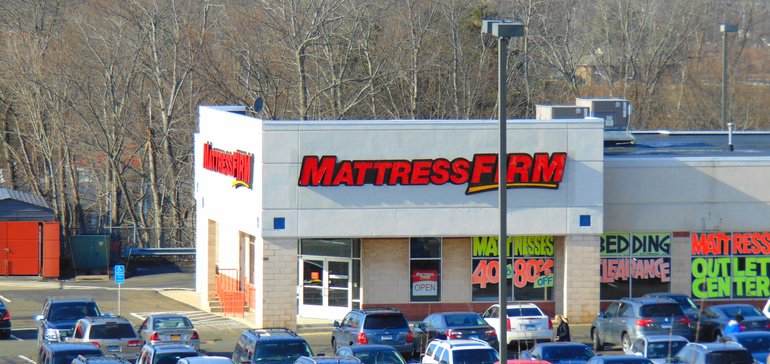Dive Brief:
- Mattress Firm is contemplating a bankruptcy filing, looking for a way to get out from under expensive store leases and shutter underperforming locations, Reuters reported on Tuesday, citing unnamed sources. Parent company Steinhoff declined Retail Dive’s request for comment.
- Steinhoff, the South African conglomerate that acquired the mattress retailer two years ago, has been in talks with creditors over restructuring its debt and some of its operations, according to a June announcement.
- Mattress Firm late last year announced it would shutter about 200 stores as part of a restructuring effort.
Dive Insight:
News of a possible Mattress Firm bankruptcy filing will surprise few observers. In addition to the financial troubles of its parent, the largest mattress retailer in the U.S. (which operates 3,000 stores) is undergoing a significant e-commerce driven disruption.
The company has tried to get in on that action, forging a partnership with Purple, a mattress startup that says it’s profitable.
For some time now, the market has been in turmoil instigated by online pure-plays like Purple, Casper, Leesa, Yogabed and Tuft & Needle. They derive their disruption not just through the quality of their bedding but also their shopping experience. Casper, which has begun to develop its own physical footprint, is pivoting to corner the market on sleep with its recently launched experiential “Dreamery” store in New York City, which features a lounge and series of sleeping nooks to promote relaxation and napping.
Mattress upstarts have altered a buying experience that seemed purposely designed to make mattress shopping as convoluted as possible. For years, mattress manufacturers and retailers kept consumers on their toes by selling various models and versions of mattresses at a variety of prices, instituting a series of sales and markdowns that made it difficult for consumers to price compare.
The new companies cut through all that by eschewing special sales or markdown events in favor of keeping their “mattress-fits-most” offers in basic bed sizes at one price each and offering long try-out times and free returns. Despite liberal try-out and refund policies, they are also increasingly turning to brick-and-mortar stores to make choosing a mattress easier.
The strategy seems to have worked, and the successes have led to pop-ups and partnerships with more traditional retailers. Target, for example, displays and sells bedding from Casper on its site and in stores, and reportedly almost bought the company outright for $1 billion. Williams-Sonoma brands West Elm and Pottery Barn have also partnered up with Leesa Sleep, and in February Casper opened its first stand-alone store. Those successes could, however, finally be taking their toll on traditional category leaders like Mattress Firm.
Follow Daphne Howland on Twitter

